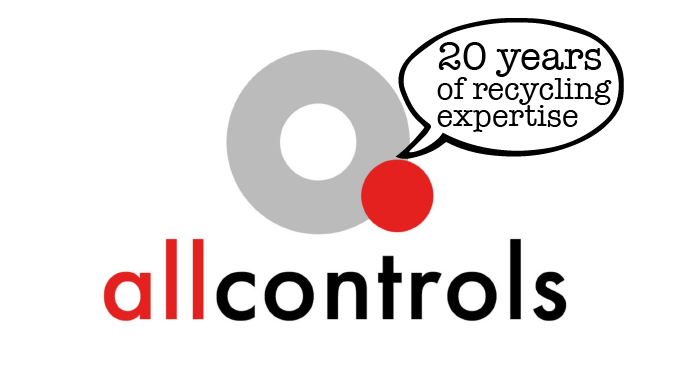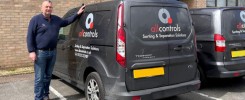As we approach Earth Day on 22nd April, the Allcontrols team has been reflecting on the impact of waste electrical and electronic equipment (WEEE) on the environment and the solutions we demonstrate daily to help combat this.
We all recognise that WEEE is now one of the fastest growing recyclable product streams. However, it also encompasses many other recyclable materials.
Tech, IT and telecoms companies in particular are obviously the biggest contributors when it comes to producing WEEE, but electronics are in a vast number of products we have simply absorbed into our daily lives. From tools to toys, household appliances to heating controls, smart devices to smoke detectors.
Our insatiable desire for “tech” and its ever-shortening lifespan have led to rapid growth in the numbers of unwanted equipment. In 2000, the average lifespan of a computer was 4.5 years but by 2005 it was down to 2 years. The problem continues to get worse and so now in 2022, we can expect this to have reduced even more.
But, what happens when these tech items reach the end of their life cycle? A conservative estimate is that around 2 million tonnes of WEEE is being thrown out every single year by both consumers and manufacturers in the UK.

Recycling WEEE
From a recycling perspective, WEEE tends to be split into several subcategories. These can then help to identify how it may be commingled with other recyclable materials:
- IT and telecommunications equipment i.e. laptops
- Large & small household appliances i.e. fridges (LDA and SDA)
- Consumer equipment i.e. IT wearables, toys
- Lighting equipment
- Monitoring & control equipment i.e. security devices
- Automatic dispensers i.e. food and drinks dispensers
Electrical and electronic equipment contains many hazardous and complex materials but can also include other valuable materials such as metals and plastics. Unfortunately, the fact is that if WEEE ends up in landfill, then there is a hugely negative impact on our environment. The many materials and toxic substances found in WEEE (including lead, mercury and flame retardants) are released into our soil, water and air when sent to landfill, posing serious risks to environmental and human health.
However, the positive news is WEEE can be recycled and it is becoming easier to do so.

In the UK alone, there are now more than 2,500 electrical recycling and reuse points for us to take our old tech. These range from local refuse centres to libraries! Councils in some areas will even collect from your home. Charities such as British Heart Foundation, Little Lives and Salvation Army also accept electrical items that are in good working condition that they can then sell or pass on to people in need. Check with your local councils and charity shops to see what options are available to you.
The pressure is also increasing for retailers and manufacturers to offer a recycling service. Before buying electronic or electrical goods, be sure to check if the retailer or manufacturer will remove and recycle your unwanted items. AO’s Remove & Recycle and Collect & Recycle initiatives are fantastic examples of how retailers and manufacturers can help.
If you want to read more about how Allcontrols helped in this process, visit the following link: /news/allcontrols-and-ao-recycling-collaboration/
Alternatively call or email us so we can advise on how best we can support you with recycling WEEE.
#earthday #investinourplanet #WEEE
Sources:
- //www.earthday.org/
- //www.hse.gov.uk/waste/waste-electrical.htm
- //www.information-age.com/quick-guide-weee-recycling-123466149
- //www.innovent.co.uk/e-waste-what-is-it-and-how-does-it-impact-the-environment
- //www.recycleyourelectricals.org.uk/how-to-recycle-electronics
- //ao.com/help-and-advice/delivery-and-services/removal-and-recycle


